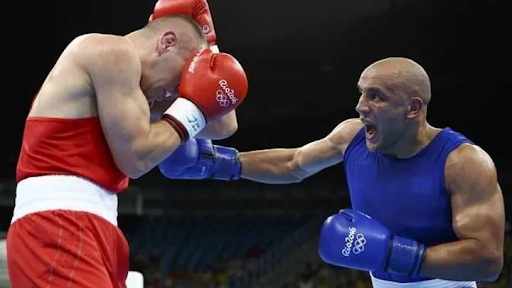Boxing in Egypt: History, Development, and Notable Boxers of All Time
varsha July 30, 2025 0 COMMENTS
Boxing in Egypt has evolved over centuries, rooted in ancient traditions and shaped by modern competitive sport. From depictions in ancient tombs to the rise of Olympic contenders, the country’s relationship with boxing spans cultural, historical, and athletic dimensions. Today, Egypt maintains a presence on the regional and international boxing scenes, with athletes competing in both amateur and professional levels.
The sport also intersects with digital trends and online communities. Sports-related mobile platforms and applications, such as melbet apk, offer access to various sporting updates and statistics, with some users engaging through betting features that include boxing matches. While boxing remains primarily an athletic pursuit, its overlap with online ecosystems reflects the broader integration of sport, technology, and entertainment in Egypt and globally.
Table of Contents
Ancient Roots of Boxing in Egypt
Boxing as a physical contest dates back to Ancient Egypt, where wall paintings and hieroglyphics from around 3000 BCE depict combat sports, including early forms of boxing and wrestling. These illustrations, often found in burial sites such as Beni Hasan, suggest that boxing was practiced for ritual, training, and entertainment purposes. Unlike the regulated format of modern boxing, ancient versions were less codified and may have included both bare-knuckle contests and mixed techniques.
While evidence points to ritualistic or military training functions, it is clear that physical combat was part of Egypt’s broader cultural and social landscape. Participants were often young men, sometimes linked to the warrior class or athletic training academies associated with temple complexes.
The Emergence of Modern Boxing in Egypt
Modern boxing entered Egypt during the early 20th century, primarily influenced by British colonial presence and the introduction of Western sports. During this period, boxing clubs began to appear in cities like Cairo and Alexandria, often as part of broader athletic associations. These early clubs helped lay the foundation for organized amateur competitions and training infrastructure.
By the 1930s and 1940s, Egyptian boxers started participating in regional tournaments across the Arab world. The establishment of national sports federations further legitimized boxing, creating pathways for formal training and selection for international competition. In 1948, Egypt sent boxers to the Summer Olympics in London, marking its debut on the global stage.
Institutional Framework and Regulation
The Egyptian Boxing Federation (EBF) is the primary regulatory body overseeing the sport nationally. Founded in the mid-20th century, the EBF is responsible for organizing domestic competitions, licensing coaches and referees, and selecting athletes for international events such as the Olympics, World Championships, and African Games.
The federation operates under the umbrella of the Ministry of Youth and Sports and is affiliated with international organizations like the International Boxing Association (IBA). Training centers affiliated with the EBF exist in several major cities, supporting both youth and elite athlete development.
Boxing in Egyptian Society
Boxing in Egypt is primarily an urban sport, concentrated in metropolitan areas with access to clubs and training facilities. It appeals to diverse socioeconomic groups and is often seen as a vehicle for personal advancement, especially among youth in economically challenged neighborhoods.
While boxing has not reached the mass popularity of football, it maintains a loyal following and garners attention during major international events. Local television occasionally broadcasts championship bouts involving Egyptian contenders, and matches are increasingly followed through digital platforms.
Moreover, the rise of social media and sports-focused mobile apps allows for real-time updates, live scores, and match analytics. Some platforms also support betting on boxing events, a phenomenon that is growing globally and increasingly visible in Egypt’s online space, though it remains a topic of legal and cultural debate.
Prominent Egyptian Boxers of All Time
1. Mohamed Hikal
Mohamed Hikal is one of Egypt’s most accomplished amateur boxers. Born in 1979, he represented Egypt in four consecutive Olympic Games from 2000 to 2012. Competing primarily in the middleweight division, Hikal won bronze at the 2005 World Amateur Boxing Championships and was a gold medalist at the All-Africa Games. His longevity and consistency have made him a reference point for aspiring Egyptian athletes.
2. Hosam Bakr Abdin
A bronze medalist in the 2008 AIBA World Championships, Abdin is another notable figure in Egyptian boxing. Known for his tactical prowess and ring awareness, he competed in multiple Olympic Games and was a strong representative for Egypt at African and Arab-level championships.
3. Abdelrahman Oraby
Competing in the light heavyweight category, Oraby participated in the 2016 Rio and 2020 Tokyo Olympic Games. His disciplined style and physical conditioning have brought him regional acclaim, and he remains active in national team programs as of the mid-2020s.
4. Yousry Rizk
A heavyweight competitor, Rizk has been part of Egypt’s national boxing setup in the 2010s and 2020s. His performances in African and Mediterranean tournaments earned him a reputation as one of the rising stars of Egyptian boxing.
Women’s Boxing in Egypt
Women’s boxing is a relatively new phenomenon in Egypt, facing cultural and logistical challenges in its development. Although historically underrepresented, the last decade has seen a gradual rise in participation. Government-sponsored initiatives and sports NGOs have begun supporting female athletes through coaching programs and access to facilities.
There are a few competitive female boxers who have represented Egypt in regional tournaments. However, female participation remains limited in comparison to other sports, and continued progress depends on structural support, social acceptance, and investment in training environments.
Challenges Facing Egyptian Boxing
Despite historical depth and regional talent, boxing in Egypt faces several challenges:
- Infrastructure Limitations: Access to modern training facilities is uneven, especially outside major cities.
- Funding and Sponsorship: Financial constraints limit the number of international competitions Egyptian athletes can attend.
- Coaching Development: There is a need for continued training and certification of coaches to meet international standards.
- Media Exposure: Limited media coverage reduces public awareness and inhibits potential sponsorship deals.
Nevertheless, the country continues to produce competitive boxers who perform well in African championships and occasionally on the world stage.
Future Outlook
The future of boxing in Egypt depends on several interrelated factors: institutional support, youth development, media visibility, and international collaboration. Digital platforms—particularly mobile apps that provide match data, athlete stats, and even betting opportunities—may also influence the sport’s accessibility and visibility in Egypt.
While it is difficult to project precise outcomes, the existing foundation offers opportunities for growth. Increased participation among youth, development of women’s boxing, and exposure through international competition could shape a more prominent role for Egypt in global boxing circles.
Conclusion
Boxing in Egypt has a deep and layered history, rooted in ancient tradition and evolving through modern sporting frameworks. The country has produced several notable boxers, many of whom have represented Egypt on the world stage. While challenges remain, particularly in funding and infrastructure, the sport retains a meaningful place in Egyptian athletic culture.
As digital platforms and mobile technologies integrate further into the sports landscape, the way fans and athletes interact with boxing continues to change. Whether through training resources, live updates, or apps that connect audiences to betting and match tracking, boxing in Egypt remains dynamic and multifaceted. The trajectory of the sport will depend on how these elements are managed in the years ahead.
RELATED ARTICLES
Latest Articles
 People Over Papers: Protecting Immigrant…In General
People Over Papers: Protecting Immigrant…In General Budget Vs. Quality: Comparing Pre-school…In Business
Budget Vs. Quality: Comparing Pre-school…In Business Instagram IP Address Blocked: How Long I…In Technology
Instagram IP Address Blocked: How Long I…In Technology Fast, compliant global background screen…In Tech Startups
Fast, compliant global background screen…In Tech Startups Balancing Investment and Protection with…In Insurance
Balancing Investment and Protection with…In Insurance Japan Tour Packages for Travellers Who W…In Tips
Japan Tour Packages for Travellers Who W…In Tips Getting What You Need: Align Your Action…In General
Getting What You Need: Align Your Action…In General Preventing Dust Damage With Proper Lapto…In Gadgets
Preventing Dust Damage With Proper Lapto…In Gadgets



